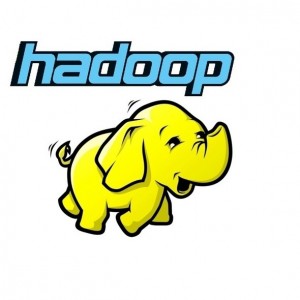 According to a new report published by Allied Market Research, the worldwide market for Hadoop set to grow to $50.2 billion by 2020 from $2.0 billion in 2013 with a CAGR of 58.2% between 2013 and 2020.
According to a new report published by Allied Market Research, the worldwide market for Hadoop set to grow to $50.2 billion by 2020 from $2.0 billion in 2013 with a CAGR of 58.2% between 2013 and 2020.
The research titled, “Hadoop Market (Hardware, Software, Services and HaaS, End Use Application, and Geography)”, report that the Hadoop market is driven by the exponential growth in the volume of unstructured data from big data analysis and the ability to access data at high speed with reduced costs compared to traditional RDBMSs. Hadoop not only provides new features of data management and is able to manage unstructured data, but also reduces costs with greater effectiveness.
The company’s analysts have segmented the market for hardware, software and services. The services segment occupied half of the market in 2013 followed by the hardware. AWS, Hortonworks, Cloudera, Cisco Systems, Datameer, MarkLogic, Teradata Corporation, Pentaho Corporation, Karmasphere and MapR Technologies among others are the key players of the Hadoop market.
The report categorized the Hadoop software market into application software, management software, packaged software and performance monitoring software and found that application software category is leading the global Hadoop software market due to high return in its increasing implementation by developers to build real time applications. Also, Hadoop packaged software provides easier deployment of Hadoop clusters. Thus, Hadoop projects such as MapReduce, Sqoop, Hive and others can be smoothly integrated.
The Hadoop hardware market is divided into servers, storage and network equipment market, out of which, storage market generates the largest revenue due to more data generation and increasing amount of storage space.
Allied Market Research segmented the Hadoop sectors in manufacturing, BFSI, government sector, retail, trade and transportation, IT and ITES, media and entertainment, healthcare, hospitality and telecommunication. Among the various application segments for Hadoop, government sectors are leading the adoption followed by healthcare and retail. In fact, the government sector has access to a large volume of data, and must deal with management problems. The telecommunications sector is going to take pace with growing Hadoop.
At this time, however, the sector has to deal with some new challenges such as lack of qualified and experienced staff that is able to effectively manage the Hadoop architecture. It is a lack that is being felt particularly in the software house engaged in the application area. This is reflected in an inertia in the adoption of Hadoop especially in small and medium enterprises. In addition, companies cannot rely solely on the analyst, they also need solutions from the scope of BI, data collection and transmission of operational information, etc.